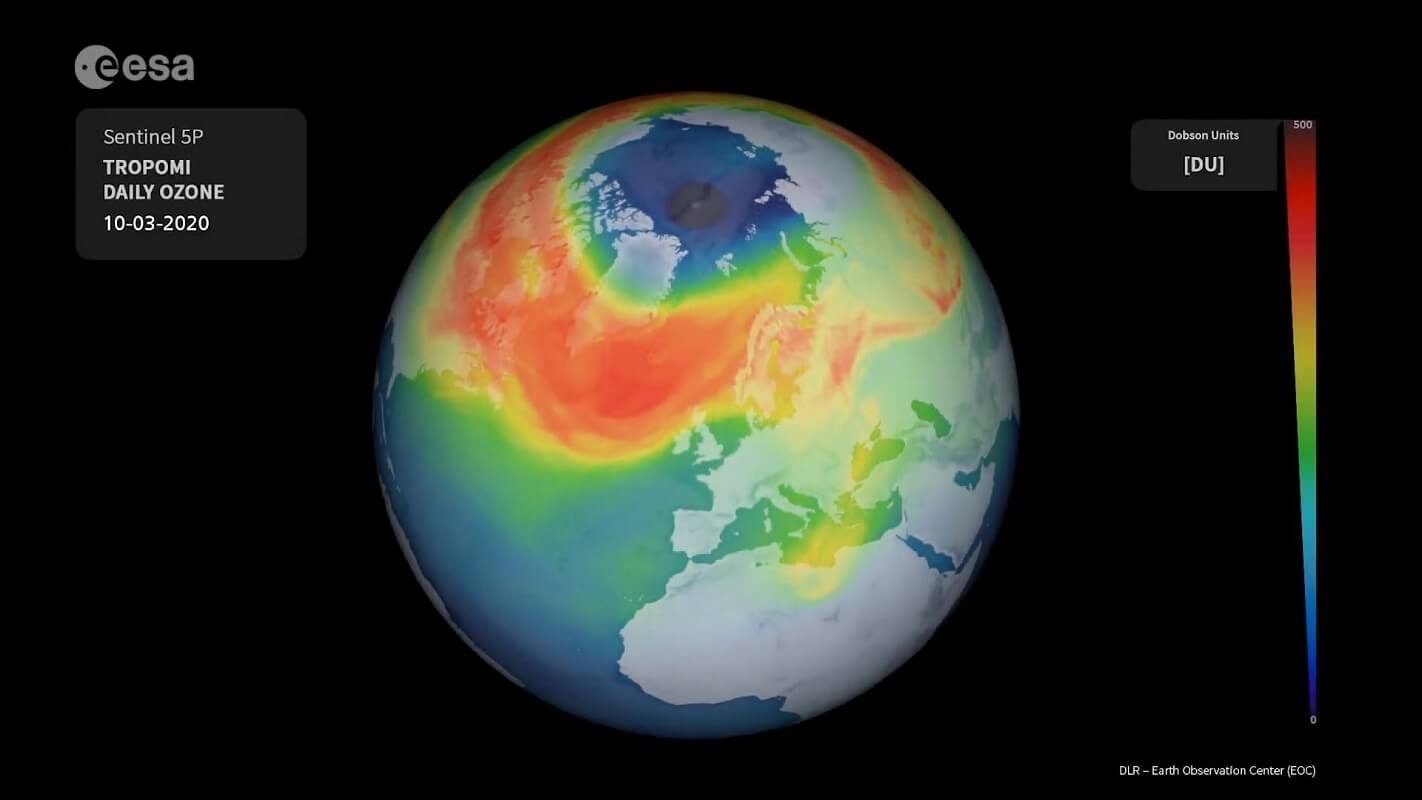Finally, Good News That Inspires Some Hope for Climate Change
Don Lincoln | 12 February 2023
If you watch the news today, you’d be forgiven for thinking that we live in dark times. Impending climate change, overpopulation, political discord, conflict in Ukraine and threats of nuclear war all paint a bleak picture.
But this week delivered some refreshingly good news: The World Meteorological Organization released a very hopeful report stating that humanity and all life on Earth dodged a bullet. The Montreal Protocol, an international agreement signed in 1987, regulated the consumption and production of almost 100 chemicals called chlorofluorocarbons (CFCs) that created a hole in the ozone layer and endangered the planet’s entire ecosystem. More than three decades later, the use of CFCs has decreased by 99%, and the Earth’s ozone layer is on track to recover in the coming decades.
This success gives some of us hope that we might employ a similar approach to mitigate today’s very pressing danger arising from climate change.
In 1974, chemists Frank Rowland and Mario Molina found that carelessly recycled refrigerators and ordinary hair spray posed an existential threat to life on Earth. The coolant in refrigerators and the propellant in spray cans were made of CFCs that, when mixed in air, rose to the very top of the atmosphere. There, the CFCs underwent chemical interactions that destroyed the ozone.
The layer of ozone gas high above the Earth’s surface acts as a shield against the most dangerous forms of ultraviolet (UV) radiation from the sun. UV radiation can be deadly to life – humans use it to sterilize water, kill unwanted pathogens in hospital operating rooms, and sanitize everything from toothbrushes to cell phones.
If the ozone were to disappear, dangerous solar ultraviolet light would make it to the Earth’s surface. In humans and animals, it would cause melanoma and cataracts. In plants, it would affect the ability to grow and produce fruits and vegetables. Perhaps most dangerously, it would kill phytoplankton in the ocean. Given that phytoplankton is the foundation of marine food chains, much of the life in the ocean would also die.
In the face of this threat, the international community took notice and, in 1987, signed the Montreal Protocol. The protocol, which established practical targets, regulated both the production and consumption of ozone-depleting substances, gave states flexibility in how they would meet those goals and created a fund that provided financial and technical support for developing countries to comply with the agreement.
Since then, scientists have been monitoring the size of the ozone hole, which is shrinking. The success of the Montreal Protocol shows that world leaders can address global, existential problems by working together toward a common goal.
CFCs, of course, are not the only way humans have endangered the Earth’s ecosystems. Indeed, the emission of carbon dioxide now poses a much greater danger. By burning fossil fuels like coal, oil and natural gas, humans are pumping carbon dioxide into the atmosphere at a rate of over 35 billion tons per year. The increase in carbon dioxide concentration over the past few decades has raised it to levels not seen over the past million years.
Carbon dioxide is called a “greenhouse gas,” because it acts like a greenhouse, trapping heat under it. This causes the surface of the Earth to heat up, leading to changes in the climate. Previously habitable places become drier or wetter. A hotter Earth leads to glaciers melting, rising sea levels and the flooding of low-lying coastal areas. Island nations like Kiribati could disappear altogether.
These disruptive climate changes are having a significant impact on humanity, including droughts in the American West, with rampant wildfires and emptying reservoirs. More heat in the atmosphere is also causing more intense and destructive hurricanes, with attendant damage to houses and businesses.
Carbon emissions are not due to any one nation. While historically the main emitter was the US, today it is China, with the US, the European Union, India, Russia and Japan being other leaders in this unwelcome ranking. No one country can fix this problem. What is needed is international negotiation and agreement to move humanity to other sources of energy beyond fossil fuels.
Certainly, the governments of the world have tried. In 2015, nearly 200 nations signed an accord signed in Paris, agreeing in principle to address the carbon dioxide emission problem. Under President Donald Trump, the US withdrew from the pact in 2020, although it rejoined in 2021 when President Joe Biden took office. However, speed bumps like these should not deter the nations of the world. We know the problem and we have shown that we can cooperate when there is an existential threat to civilization. The example of successful CFC mitigation provides a blueprint – at least in spirit – for humanity to work together for the better of us all.
Carbon dioxide is an enormous danger to humanity and civilization. It is an international problem, requiring an international solution, and the success of the agreement banning CFCs gives us some hope that humanity will once again rise to the occasion.
Don Lincoln is a senior scientist at the Fermi National Accelerator Laboratory. He is the author of several science books, including the audio book “The Theory of Everything: The Quest to Explain All Reality.”
This article was originally published on CNN.
Views in this article are author’s own and do not necessarily reflect CGS policy.
